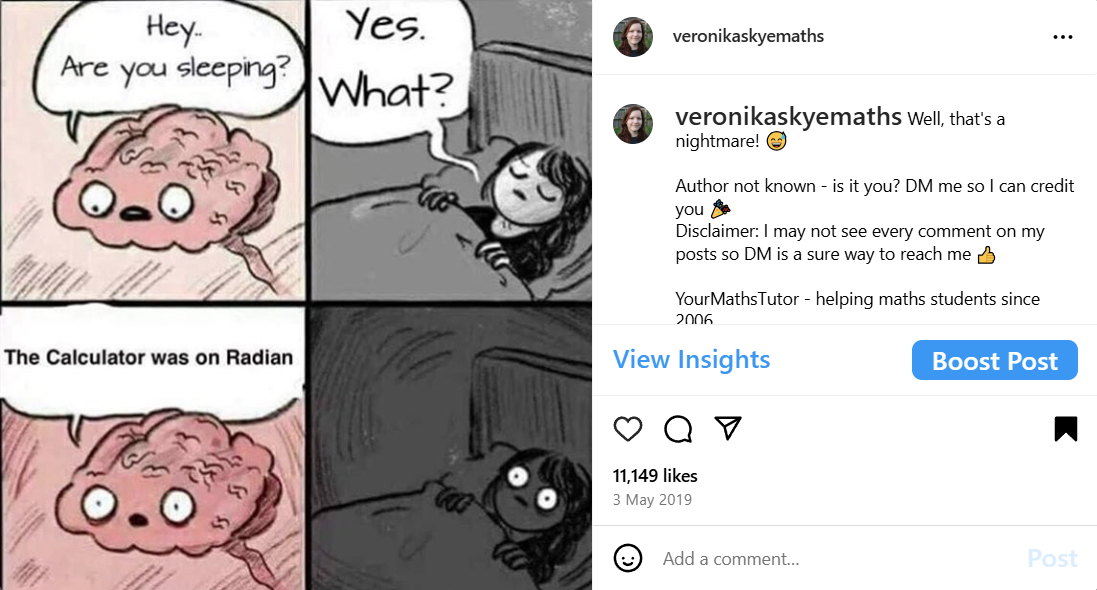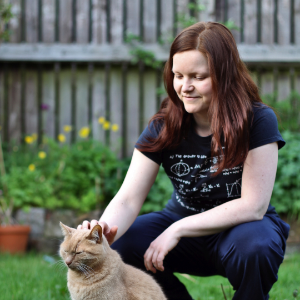
Do you want to achieve the best grade, but you're still losing marks? Do you think you know your maths, but your mock exams (prelims,... or any practice tests you've done) are looking worse than you expected? Let's look at unnecessary mistakes that cost you marks.
When I tutor my British or international students (whether for iGCSE, IB, or even some less common exams for different national curricula), I see recurring unnecessary mistakes that cause trouble in getting the grade they're aiming for. I've done a lot of GCSE marking, both when working in school and throughout my tutoring career, to become confident enough to say, "Yes, they want to give you as many marks as possible for any (relevant) work you've shown." And that's the key point. It's the same for other exams too, not just GCSE.
So, let's look at some tips you should know and keep in mind when working on your maths exams so the examiners can give you the marks you deserve:
- Read the question properly! It's crucial to understand and answer exactly what they're asking for.
- Is that discount per month or per whole year? In the second case, don't forget to multiply your monthly discount by 12.
- Do they want to know what's less or more? You know that 1.2 kg is less than 12,000 g, but if they're asking what's more, underline those twelve thousand grams, please.
- Units! To have 112p or £112 is a huge difference, I bet you agree!
- What you convert and when you convert it usually doesn't matter, but keep in mind the units they want you to use for your answer.
- And please, make up your mind whether you're working with degrees or radians (that's mainly relevant for you guys in colleges, working on A-level, Higher, or Advanced Higher maths). Believe me, sin(90) isn't the same as sin(90°) — that said, your calculator might make it look like it is, but the secret is in the correct settings. So check how your calculator is set, as it could cause an unpleasant surprise.
This last tip especially, is an endless source of great maths memes, such as this one:
It got me quite a lot of likes, so I guess it's pretty funny... I'll leave that up to you.
Let's get back to the tips:
- Rounding! If you need to round, do it correctly.
- If asked to do so, use the required rounding (three significant figures are — most of the time — not the same as three decimal places, etc).
- On the other hand, if your answer should be expressed as a multiple of π (pi, yes, it looks weird in this font), often when working on a circumference or an area of a circle, or later with spheres, do not round your answer. Leave π as π; it won't bite you, it's just a number.
- Show your work! I cannot highlight this enough. Show. Your. Work. Seriously.
- When there's work to be seen, you'll often still get marks (for the correct method) even when your answer is incorrect. No work + wrong answer = no marks. It's that simple. Just like that equation I just wrote.
- Check your work! When asked to do so, do it. I mean it. Check. Your. Work.
- Practice how to check answers. Reverse calculation is the most commonly used, but any other sensible way of calculation is fine too.
- When you have to check 7 x 5 = 35, your checking could be either 35 ÷ 7 = 5 (or equally 35 ÷ 5 = 7, your choice should reflect the information given in the question). But you can also check multiplication by using its definition as a sum of n equal numbers, like 5 + 5 + 5 + 5 + 5 + 5 + 5 = 35 (or the same with five sevens...)
- And check your answer even when not asked to. Use at least mental maths to avoid mistyping: you can easily type 12.8 x 35.6 into the calculator instead of 12.8 + 35.6. Use common sense to decide that when you should add those two numbers, you expect the result to be somewhere around 50, not 455.68 as it would be if you (by accident) used multiplication.
Yes, there's more, but these few tips should help you a lot. Then just keep working on your maths knowledge and cover your weak areas. And remember, there's always a way to learn everything, even the worst-looking part of maths (like boring statistics, incomprehensible trigonometry, weird vector algebra, crazy expressions with a billion fractions and powers, or logarithms that give you a rash just thinking about them...) The key is understanding the problem and how the maths works there. Then it's easy.
And if understanding maths is the problem, I've got you covered — with various maths solutions tailored to different learners' needs. Explore the options and tell me what kind of help you need so you can smash your exam!



